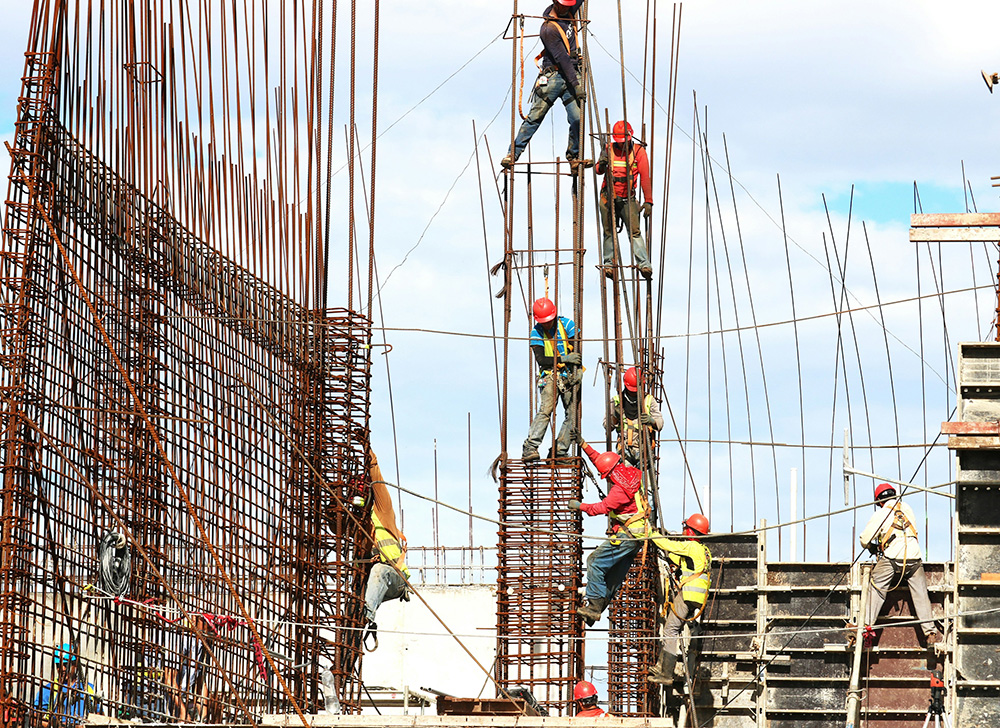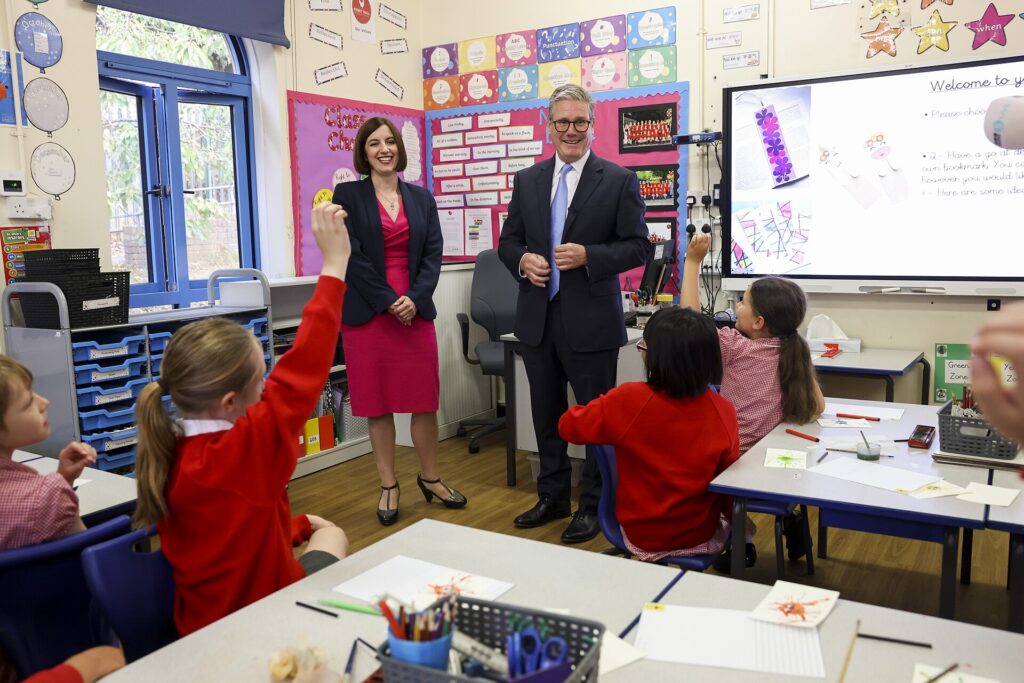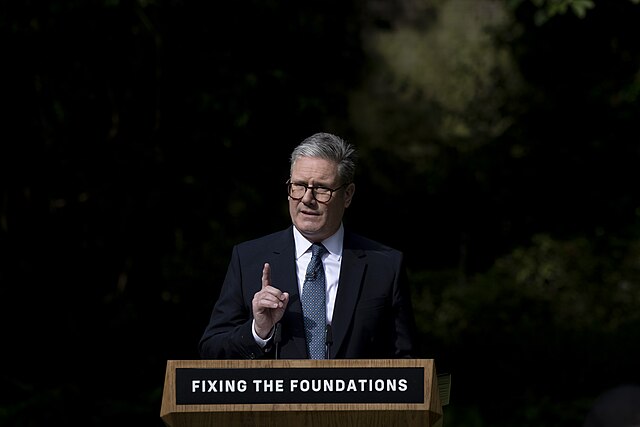Yesterday, the Prime Minister stood at a podium in front of six brightly coloured banners emblazoned with short and sweet slogans, each representing a milestone for the Labour government to achieve by the end of the decade.
This was received with a mixed response from commentators and came on the day that a new poll suggested Reform UK had overtaken Labour in voting intentions for Parliament to grab second place to the Tories.
Fast forward to today and the PM found himself on BBC Breakfast answering the question, “Why do you think you are so unpopular?”. Starmer could have been excused for wondering how it had come to this so soon into his premiership. His response was that voters would pass judgement “at the end of the five-year term on whether we delivered what we said we’ll deliver” and that tough decisions had to be taken.
From the cut in winter fuel allowance and increase in tuition fees to the removal of the £2 bus fare cap and the early release of prisoners, much has been heard about the tough decisions, but what should voters expect to be delivered as a result?
Raising Living Standards

Economic growth – or the lack of it – has proven to be a major stumbling block for governments worldwide and in a year of elections like 2024, it has fed into anti-establishment sentiment which the UK has not been immune to.
It is not without reason that the term ‘vibecession’ has done the rounds. Coined by the American writer Kyla Scanlon, the term refers to the gap between how well an economy might be doing and voters’ perceptions of how well the economy is doing for them.
It goes some way in explaining why Donald Trump defeated the Democrats despite the US having the strongest performing economy in the G7, according to the International Monetary Fund (IMF) among other metrics. It also goes some way in explaining why Keir Starmer has shifted language from relying on those metrics – “We will deliver the highest sustained growth in the G7” – to more people-focused measures so that workers “have more money in their pocket”.
How would the Government prove that they achieved this by the next election in 2029? They could point to disposable income – the amount of money people have to spend after tax – which would explain the reluctance by Labour to increase employee National Insurance contributions, but not the freeze on income tax thresholds.
Ultimately, by setting the bar against other developed capitalist economies, the end result may be quite relative and down to whether workers are able to fully taste the fruits of their labour.
Building homes under Labour

There are two words in the English language which can be relied upon to trigger a wave of NIMBYism: planning permission. NIMBYs – in effect, the sentiment that cries “not in my backyard” when new building proposals are laid out – have been blamed for the slow process from proposing an infrastructure project to finally cutting the ribbon.
Deputy PM Angela Rayner overlooks the housing portfolio and has already experienced a backlash from local authorities of different political stripes over the setting of targets that are seen to be overly ambitious. Planning is also expected to be “fast-tracked”.
By doubling down on the targets, the Government is signalling its determination and hopes to hit two birds with one stone: improving infrastructure and raising productivity for economic growth. The plan will not be without its challenges though, as experts argue about the impact of factors such as affordability and the provision of social housing.
Building an NHS for for the future

Waiting lists were also on the lips of many voters at the last election and as an issue that tends to hit home for people, be that a niece in need for mental health support or a grandad whose routine knee operation has been postponed, noticeable improvements will strengthen the perception that things are getting better.
The Government’s target is to ensure that at least 92% of patients receive treatment within 18 weeks. If this is achieved on a national level (and Westminster only manages England’s healthcare system), then attention will turn to regional disparities that exist between and within counties, including across Yorkshire.
Currently, over 3 million patients are waiting for more than 18 weeks and much weight is being put on technology to reduce this number. However, the plan stresses that “investment alone is not the solution” and that additional money needs to be twinned with “reform”.
Will Labour make our streets safer?

By calling for “safer streets”, Starmer put forward a safe plan that is hard to argue with. The number behind this is 13,000. That’s 13,000 new officers, with a “named officer for every neighbourhood” in an attempt to tackle insecurity and crime.
The Police Federation, a body that represents police officers in England and Wales (policing, like health, is also a devolved matter), welcomed the PM’s announcement but also highlighted long-standing funding issues that may throw a spanner in the works for this particular milestone.
A law-and-order agenda may also appear as a sop to floating voters, without energising parts of Labour’s traditional electoral base. Allegations of institutional racism, sexism and homophobia still linger and it will take little reminding to voters that policing is only one part of the equation. The remaining components – court backlogs and prison over-crowding – will need to be resolved for the wheels of justice to once again grind on.
Breaking down the barriers to opportunity under Labour

“Giving children the best start in life”. This is what Starmer is promising. Uncontroversial enough, but what does this mean in practice? Critics will point to Labour’s maintenance of the two-child benefit cap – which the SNP-led Scottish Government commits to ending by 2026 – as an obstacle to relieving child poverty, while supporters reminisce over Labour’s pioneering of Sure Start centres in the 2000s.
The education secretary, Bridget Phillipson, has made clear that early-years provision will be a focus of her term in office, but some in the sector worry that this may be to the detriment of other pressures such as SEND provision and university finances, without even fully addressing the causes behind the childcare crisis.
The Department for Education will hope to raise the percentage of five-year-olds who have a “good level of development” from its current rate of 67.7% to 75%. The level of development is decided by teacher assessments.
Daniel Kebede, the general secretary of the National Education Union, said: “Successful reception into school or nursery year is the right goal but targets around the idea of ‘school readiness’ are not actually helpful. Talking about children as ‘ready for school’ or not, is hurtful to children and their families and we’d rather see detail about support and capacity building.”
Reacting to an earlier government announcement about increasing state-funded childcare provision, Purnima Tanuku OBE, Chief Executive of National Day Nurseries Association, said: “We support the government’s commitment to investing in our youngest children’s futures. This is something that families really need in order to give their children the best start in life and also enable parents to work”.
Make Britain a clean energy superpower

Much had been said about GB Energy in the run-up to the election and its lead champion, energy secretary Ed Miliband, has not been afraid to make a name for himself at home and abroad on the topic of net zero.
Setting a goal for 2030, the government aims for the UK to source 95% of its power from clean sources, with a particular emphasis on “homegrown energy” to avoid the sort of reliance that countries like Germany have on imports.
The Green Party co-leader and MP for Waveney Valley in Suffolk, Adrian Ramsay, however has pointed out what he sees to be a flaw in the plan: how to climate-proof Britain’s vulnerable communities.
That was it for take two and Starmer’s first reset, only days after the Sheffield Heeley MP Louise Haigh had to exit stage right from the Department for Transport. In a week when Labour also named the first few rail operators to be renationalised – South Western Railway, followed by c2c and Greater Anglia – there may be hopes in Downing Street that Thursday’s speech will set the scene for a rebound in the polls.
While government ministers console themselves with references to “the mess we inherited”, there will come a time when such deflection will be given short shrift (in some quarters, it has already). Great expectations can too often be a precursor for greater disappointment.
In an age of political distrust and instability, this ‘Plan for Change’ risks being seen as simply a plan on paper, unless Starmer puts his money where his mouth is. For Labour supporters – not least Labour MPs themselves – they will hope that these milestones do not become millstones around the Prime Minister’s neck.


